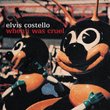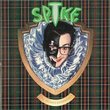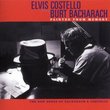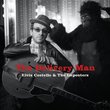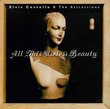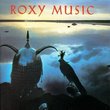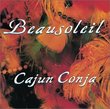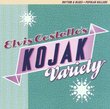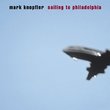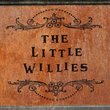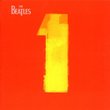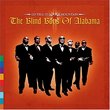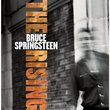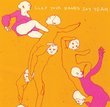| All Artists: Elvis Costello Title: North Members Wishing: 0 Total Copies: 0 Label: Deutsche Grammophon Original Release Date: 1/1/2002 Re-Release Date: 9/23/2003 Genres: Alternative Rock, Folk, Pop, Rock, Broadway & Vocalists Styles: Singer-Songwriters, Indie & Lo-Fi, Singer-Songwriters, Adult Alternative, Cabaret Number of Discs: 2 SwapaCD Credits: 2 UPC: 602498091630 |
Search - Elvis Costello :: North
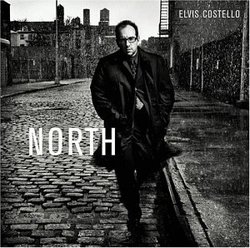 | Elvis Costello North Genres: Alternative Rock, Folk, Pop, Rock, Broadway & Vocalists
|
Larger Image |
CD DetailsSimilar CDs
Similarly Requested CDs
|
CD ReviewsThe unthinkable: Elvis Costello drunk with love! 29-year old wallflower | West Lafayette, IN | 03/03/2005 (5 out of 5 stars) "Throughout his career, Elvis Costello has made his reputation on changing his music styles with the days of the week. Even the angry punk he had made his name on & with which he became an unofficial member of the movement was just one facet of his identity, for shortly afterwards, he dabbled in soul (1980's GET HAPPY!!), country (1981's ALMOST BLUE), baroque pop (1982's IMPERIAL BEDROOM), and even classical (1993's THE JULIET LETTERS). The latter has proven to be more than just an ordinary flirtation, for even while THE JULIET LETTERS album with the Brodsky String Quartet may have been a very obviously self-conscious affair, Elvis returned to the genre three times more, recording an album with opera singer Anne Sofie Von Otter (2001's FOR THE STARS) & then recording his first full-fledged classical work (i.e. not still having his lyrical talents to fall back on) with IL SOGNO (2004). In between those two, Elvis recorded a unique jazz-pop hybrid (although it is released on Deutsche Grammophon, the label for his classical material) with 2003's NORTH. One of the things that makes NORTH Elvis' best classical-based work is the story behind its creation. After the divorce from his second wife Caitlin O'Riordan, Elvis met jazz singer Diana Krall (who my mother is quite a fan of). Supposedly, it was love at first sight, and by the time Elvis began work on NORTH (less than a year after 2002's artistic renewal WHEN I WAS CRUEL), the two were engaged. For someone as legendarily misanthropic in his music like Elvis Costello, the idea of him getting all lovey-dovey may be a frightening one. Just maybe finding the love of his life has Elvis wishing to sing rainbows, and while occasionally his lyrics will still retain a sense of didacticism, there is no secret about what each of the 11 songs are about. Of course, not every song on NORTH is completely dedicated to his new love. Some songs like "You Left Me In The Dark" could easily be about the demise of Elvis' second marriage with him wondering just how things went wrong. Rather than laying the blame at his ex-wife's door, Elvis accuses himself: "Nothing I do can make you stay/I'm glad it will rain today". "Fallen" also finds Elvis with a heart of despair over messing up a good relationship with its autumnal music & especially in its lyrics full of browns, ambers & burnished golds. Where the orchestral arrangements could have gotten over-the-top (and on "Can You Be True?", it comes quite close to that), they are actually much more subtle than expected, which was something THE JULIET LETTERS did not have enough of. Those are the only two songs on NORTH that find Elvis in a dark mood matching the blackness of the cover art. The rest clearly have him celebrating his newfound romance & darned be the results. "Still" is perhaps the most romantic Elvis has ever gotten in his music, especially with the opening verse. Elvis still does not have his head too high in the clouds, though, if the last verse is any indication: "I want to kiss you in a rush/and whisper things to make you blush/and you say, "Darling, hush". "Let Me Tell You About Her" certainly indicates Elvis' wish to tell the world about his new love, whether or not they care to listen. Elvis' lyrics have often been compared to Cole Porter, and maybe he is aware of that with the reference to Cole's classic song "You're Sensational". "Someone Took The Words Away" works in a similar fashion, demonstrating how Elvis is at a loss for words upon seeing his new love for the first time, as does "When Did I Stop Dreaming?". These three songs are the ones that contain the trademark Costello wit, only this time being used for good rather than criticism. "You Turned To Me" has Elvis wondering if he could all be dreaming these amorous feelings, and if his new woman does in fact consider him her new addiction. One song that does not have an orchestra of any kind on it, the simple bass & piano accompaniment still manages to sound as full as it needs to be. "Can You Be True?" has Elvis inquiring whether his new love will be as faithful to him as he will be to her. Elvis again shows no shame in being love poet extraordinaire, as he does on the more positive outlook of "When It Sings", but that just indicates the former angry young man of MY AIM IS TRUE (1977) & THIS YEAR'S MODEL (1978) has done a lot of growing up since those acid-drenched masterpieces. When you hear the devotional lyrics to a song like "When Green Eyes Turn Blue", it is apparent that Elvis has learned when to put the verbal daggers away if necessary. The love letter that is NORTH closes out in utter bliss on "I'm In The Mood Again", with Elvis creating a reverent ode to love in the big city, one you could hear emanating from a club after midnight in New York City. With just a piano (played by Elvis himself, whereas the keyboard playing mostly rested upon old Attractions member Steve Nieve) & a vibraphone as accompaniment, that is all the song needs to show that Elvis Costello is ready to give love a chance, and just maybe the third time is the charm. After experiencing some 40 straight minutes of unabashed romantic celebration, one can not help but hope that turns out to be true. While NORTH may not be as overtly classical as THE JULIET LETTERS or even IL SOGNO, that in fact is what makes it work so well. With THE JULIET LETTERS having been more a pastiche of a string quartet sound rather than a tried-and-true experiment with it, NORTH's more understated use of a classical sound, and concentrating more on the jazzier elements of the music therein (sounding like the theme albums that Frank Sinatra had created so successfully in the '50s & '60s, only this time, Elvis is taking a crack at writing standards as well as singing them), makes it one much easier to enjoy for what it is, and not what it should have been. The music of his future wife perhaps had a profound effect on Elvis' own work, and he would even collaborate with Diana Krall for the original songs on her then-upcoming THE GIRL IN THE OTHER ROOM album. Those who come into NORTH expecting just another genre experiment will be much surprised to see Elvis thrive in yet another style of music one would think he had no business even attempting." MacIntosh In The Rain K. H. Orton | New York, NY USA | 05/16/2005 (4 out of 5 stars) "Look, you suffered through the "Country" album. The "classical". The inevitable "covers" record. More than a few "concepts". You knew it was coming. Say hello to the "Jazz" record. Though, cynically loathed as the "Diana Krall" album, that's really unfair. He's obviously going for the hushed, after-hours moods of Billie Holliday & Chet Baker here. And this isn't the first time he's tipped his hat to Messrs. Porter & Gershwin. True, the nostalgia factor here is a bit precious & clausterphobic. The sombre, smokey Jazz club atmosphere is pervasive. Since all the songs are in the same mood, it's easy for them to go in one ear if you don't have much of an attention span or are comparing everything he does to the "old Elvis". Costello's career certainly wasn't built on subtlety or restraint. But at the risk of going over most fans heads, here it is in spades. Here we find Rock's 'angry young nerd" shuffling through the perpetual Gloomy Sunday of emotional introspection. It's all falling leaves of doubt, rainy afternoons & wilted roses. Some critics have complained of his use of vibrato on this. But to these ears, its some of the most emotionally naked singing of his career. In the past, Costello increasingly seemed bent on pushing the boundries of his range. But as evidenced on the likes of "Shipbuilding" & "Almost Blue", he can sound pretty suave when he favors a more amicable, lower key. Which is what he does here. Furthermore, given a real listen, the songwriting is far from shabby. True, its not biting & chock full of witty double entendres, but if you really listen to what this album is telling you, that's far from the point. To me its about taking stock & being honest with yourself. "You Left Me In The Dark" begins with the absent last words of a crumbling relationship. "I'm In The Mood Again" closes the album with the uncertainty of a new one just begining. Possibly the most striking song is "You Turned To Me". The sound of someone falling prey to that irrevocable spell of temptation, agonizing on the verge. Close on the heels, is "Fallen", a more-than-resigned number about falling in love(sigh)yet again. I've been a fan for longer than I care to relate, but since BLOOD & CHOCOLATE, I always kind of thought he was stabbing around in the dark. Hitting the mark as much as missing it. Not quite living up to those famous words laid down in "Alison". I'm not saying this one of his best albums but it's certainly far less annoying than PAINTED FROM MEMORY. While it has proved somewhat unpopular with impatient fans, at the very least it's a total about face from WHEN I WAS CRUEL." A MASTERPIECE! G. Engler | The Frigid Northeast | 10/07/2007 (5 out of 5 stars) "Don't expect Pump It Again or Radio Radio from this mature man in love. While McCartney is still writing silly love songs (which I love) Costello is writing musically sophisticated songs reflecting his growth as an artist and as a man.
Some of this is tough stuff - it's beautiful, but requires multiple listenings. That's OK - it's worth it. Sophisticated arrangements of complex tunes - don't expect verse verse bridge here - it's simply gorgeous stuff. Songs to listen to late at night with candlelight and a glass of wine, with your beloved's head in your lap. Diana Krall was the best thing to ever happen to Elvis. Judging from the depth of this material, I'm sure he'd agree." |

 Track Listings (11) - Disc #1
Track Listings (11) - Disc #1